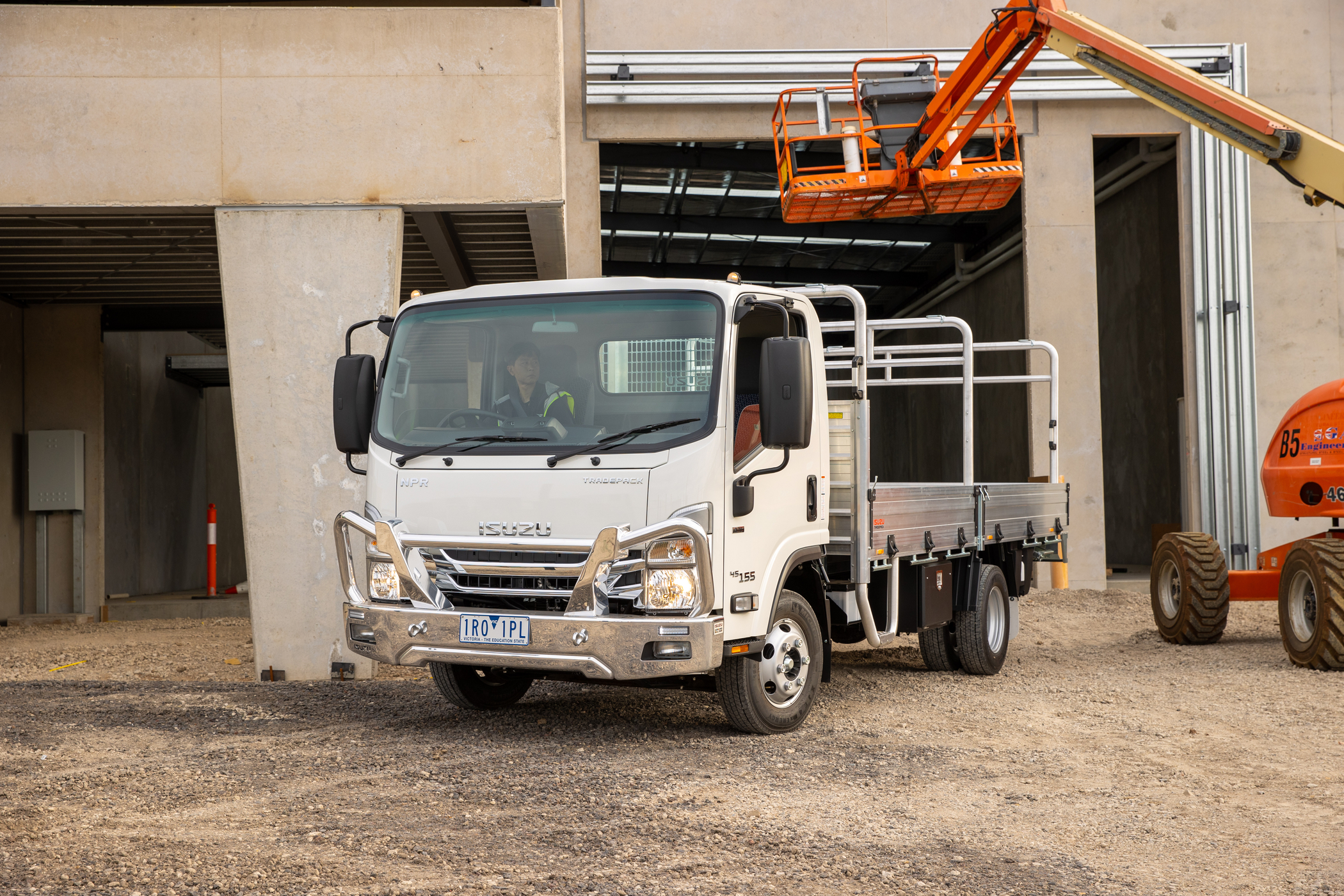GEARING UP: UP-SKILLING YOUR DRIVERS

 From legal to logistics, manufacturing to medical, the core of most successful businesses and services is their staff.
For employees to be efficient they must keep productivity high while maintaining quality service, which means employers need to supply the skills, training and qualifications to support them.
There are no formal study options for a great attitude and strong work ethic, but covering the rest is simply a matter of finding the right course.
The introduction of Chain of Responsibility legislation, in conjunction with the Heavy Vehicle National Law*, means that everyone involved in moving freight has no place to hide, legally speaking.
Anyone can be deemed culpable – from company owners, to consignees and receivers – and they don’t even have to see the load in question.
The new rule of thumb is: if you could have enabled compliance, you can be held responsible for a breach.
The best way to avoid a breach ever happening is to give your workers the correct training for their job.
From legal to logistics, manufacturing to medical, the core of most successful businesses and services is their staff.
For employees to be efficient they must keep productivity high while maintaining quality service, which means employers need to supply the skills, training and qualifications to support them.
There are no formal study options for a great attitude and strong work ethic, but covering the rest is simply a matter of finding the right course.
The introduction of Chain of Responsibility legislation, in conjunction with the Heavy Vehicle National Law*, means that everyone involved in moving freight has no place to hide, legally speaking.
Anyone can be deemed culpable – from company owners, to consignees and receivers – and they don’t even have to see the load in question.
The new rule of thumb is: if you could have enabled compliance, you can be held responsible for a breach.
The best way to avoid a breach ever happening is to give your workers the correct training for their job.
Knowledge is power
Finding the right training avenue depends on your specific needs, but there are some fundamental options that will help you draw the most from your staff and business. This qualification is important for anyone intending to operate a truck. It covers vehicle inspection, loading and unloading goods, manual handling, route planning, applying fatigue management strategies, legislation and safety, as well as the requirements for earning a heavy vehicle licence in your chosen class. There are also opportunities to up-skill for more highly specialised driving operations, such as dangerous goods and over-dimensional vehicles. The 2015 NTARC Major accident investigation report showed that fatigue was the major contributing factor in 12.8 per cent of serious accidents involving heavy vehicles – the highest percentage since 2007. Western Australia was particularly affected, reporting that 30 per cent of its crashes were fatigue-related. Both basic and advanced fatigue management accreditation is available, but the advanced option offers more autonomy around balancing work schedules. Logistics covers certification in competency units such as documentation; receiving and dispatching goods; inventory systems; stock order, control and store; estimation/calculation of mass, area and dimensions; and team management. It may also include a licence to operate a forklift or an order picker. This features many crossovers with units in the Certificate in Logistics, though it focuses on how to shift loads using various types of equipment, working with dangerous or high risk goods, and maintaining a records system. Additional short courses or certifications that may be beneficial include: Load Restraint, Forklift Training and Assessment, Chain of Responsibility, Work Diary, Construction Induction Card and Maritime Security Identification Card.Money money money
The initial outlay for training may seem like prohibitive expenditure, which is understandable, but inefficiency, illness, injury and liability can prove far more costly over time. Additionally, you, your business and your staff (current and prospective) may be entitled to subsidies or grants that contribute towards further training. There’s been a recent influx of funding to the road transport industry, aimed at correcting the gap between the growing freight task – which is tipped to increase significantly in the coming years – and the shallow employee pool caused by a skills shortage and an ageing workforce. But are you eligible? Subsidies and funding occur via federal and state channels, and therefore will vary by jurisdiction. Eligibility may be determined by factors including age, residency status, location, or level of formal education held. You can check for funding eligibility by state or territory here: VIC, NSW, QLD, WA, SA, NT, TAS, ACT The Department of Education and Training myskills website also provides a comprehensive search by course and location, with information on career pathways, funding, expected outcomes and registered training providers.Finding a driver training provider
Registered Training Organisations (RTOs) deliver nationally recognised certifications, and there’s a plethora of transport and logistics RTOs available Australia-wide. Some operate in their home state only, while others span multiples states such as Foresite Training in VIC and QLD, and TIDE in SA and VIC. Driver Education Centre of Australia was first established as a training complex in the Goulburn Valley and, 40 years later, has grown to offer expert advice and training for all kinds of heavy vehicle licensing. Barklys is a well-respected Melbourne based operation established in 1951. It offers one-to-one teacher to student ratio, with instructor performance guaranteed, and is Vic Roads and Work Safe accredited. Yugo Driving School boasts a 90per cent or higher pass rate for beginners. It’s been in operation since 1972, is based in Dandenong, Victoria, and also offers forklift assessments. Wrightway is a Maddington, Western Australian based company, currently conducting a free introduction, training and assessment session for Heavy Rigid, Heavy Combination and Medium Combination licences. It offers flexible hours and training, and a modern fleet. Not all training providers are metro based. For example, Regional Transport Training Services operate out of two locations in South Australia – Berri and Barossa. Licence Training Provider Considerations:- Are they a Registered Training Organisation?
- Is the training relevant to the state(s), territories you work in?
- Will the fees cover theory, practical and assessments? (NSW don’t allow RTOs to assess their own trainees, it must be done by an independent assessor)
- Are the lessons in a group, or one on one?
- Is it the right class of licence?
- Is it the right transmission? (your licence may be restricted based on the kind of truck used in the assessment)
- Does it have appropriate training facilities and vehicle types?
- Is there a possibility for workplace-based training?
- Is it flexible, offering intensive or after-hours training options?
- Is the training geared towards future employment needs?
- If necessary, can they perform a pre-employment assessment on prospective future employees?



Playtime’s over, get $3,500* to spend on extras.
If you’re ready to get serious about tackling bigger jobs, grab yourself an NLR 45-150 AMT SWB Traypack from the Ready-to-Work range for $62,990 drive away*. And to prove we aren’t playing, buy any NLR Traypack before June 30 and you’ll get $3,500* to spend on genuine accessories or an Essentials service agreement.
Learn more



